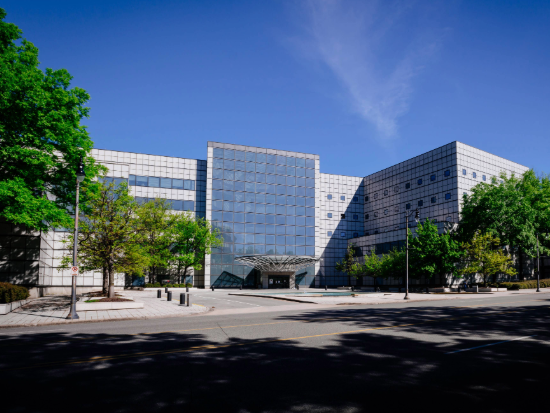 UAB has been named a Care Center by the Oxalosis & Hyperoxaluria Foundation (OHF), making it one of three designated OHF Care Centers in the world. The designation marks UAB’s recognition as an international research hub and multidisciplinary clinical site focusing on primary hyperoxaluria and other rare kidney stone diseases.
UAB has been named a Care Center by the Oxalosis & Hyperoxaluria Foundation (OHF), making it one of three designated OHF Care Centers in the world. The designation marks UAB’s recognition as an international research hub and multidisciplinary clinical site focusing on primary hyperoxaluria and other rare kidney stone diseases.
Primary hyperoxaluria is a significant kidney stone disease caused by the overproduction of the molecule oxalate. It can be diagnosed as primary hyperoxaluria type 1, 2, or 3, with type 1 being the most severe. According to Kyle Wood, M.D., associate professor in the Department of Urology and co-chair of the OHF, UAB has been pioneering oxalate research for some time while consistently growing its team of experts over the years. During that time, the UAB Kidney Stone Service Line expanded, with its clinicians and researchers serving the OHF in various capacities.
“We became well known throughout our catchment area – almost all of Alabama, parts of Georgia, Tennessee, Florida, and Mississippi, and then we began to have an international presence as one of the leaders in stone management,” Wood said.
Historically, rare kidney stone disease, including primary hyperoxaluria, has been difficult to manage and diagnose. The Mayo Clinic served as the first major hub offering established care for rare stone disease.
“Then the landscape changed over the last decade where a lot of other researchers and physicians had become experts in the field,” Wood explained. “So, the OHF really wanted to expand beyond the Mayo Clinic to identify other centers throughout the United States and also internationally that could serve as centers for excellence.”
UAB and Boston Children’s Hospital were both named OHF Care Centers in fall 2024, making a total of three OHF Care Centers worldwide. Because primary hyperoxaluria is relatively rare and underdiagnosed, it can be difficult for patients to find experts in the field, especially without having to travel far to find them.
“That’s where the Care Centers come in place,” Wood said. “We can provide care from UAB to the entire Southeast if not a larger catchment area for any individual that’s diagnosed with a rare kidney stone disease, including primary hyperoxaluria.”
Many individuals diagnosed with primary hyperoxaluria have historically been children with end-stage renal disease, leading to a need for kidney and liver transplants. Research at UAB helped lead to the development of new FDA-approved drugs for patients with primary hyperoxaluria 1 that have changed patients’ care pathways to prevent more of them from needing transplants.
In addition to offering a strong research component, OHF Care Centers are recognized for having a multidisciplinary team of experts managing a patient’s care. Geneticists, dieticians, nephrologists, urologists, transplant surgeons, social workers, and clinical coordinators – all with both adult and pediatric components, are among those who make up this team at UAB.
“I think now with the designation, it really puts an emphasis on us continuing to create a robust multidisciplinary team,” Wood said. “We’re going to continue to modify and improve the pathway through which our patients will interact with us.”
Standing on a solid foundation established by oxalate experts, UAB’s primary hyperoxaluria team aims to continue to address the needs of patients living with the disease from various perspectives.
“We’re trying to get answers to questions for these individuals that nobody else is doing across the country, and we’re doing it here,” Wood said. “We’re leading the charge on all fronts.”